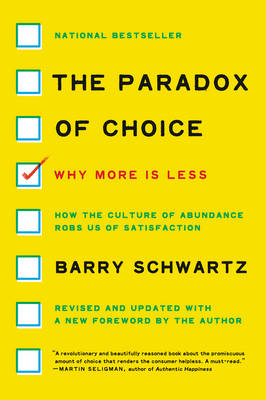The Paradox of Choice offers valuable insights into how excessive choices can lead to dissatisfaction and stress. While some found the book repetitive and outdated, others appreciated its thought-provoking ideas and practical advice.
The Paradox of Choice by Barry Schwartz explores how the abundance of choices in modern society can lead to stress and dissatisfaction. The book presents research and studies to support the idea that too many options can be detrimental to our well-being. Some readers felt the book was repetitive and outdated, especially given the current societal context. However, many appreciated the book's insights into decision-making and the concept of 'good enough' being a better choice. The book also introduces the idea of 'maximisers' and 'satisficers', which sparked reflection on societal norms and materialism. Overall, the book provides a thought-provoking look at how our choices impact our happiness and well-being.
Quick quotes
The modern Western capitalist society provides its citizens with endless choices and possibilities.
Though modern Americans have more choice than any group of people ever has before, and thus, presumably, more freedom and autonomy, we don’t seem to be benefiting from it psychologically.
I believe that the goal of maximising is a source of great dissatisfaction, that it can make people miserable--especially in a world that insists on providing an overwhelming number of choices, both trivial and not so trivial.
